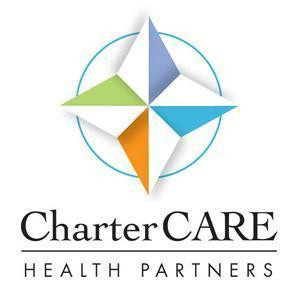Judge Stern’s Ruling Green Lights Millions in St. Joseph Pension Fund Case, Set Back for CharterCare
Monday, November 19, 2018
A decision by Superior Court Judge Brian Stern handed down last week clears the way for a minimum of $12 million to be shifted to the failed St. Joseph Health Services pension fund.
The decision, according to the receiver Stephen Del Sesto, is another step closer to retrieving tens of millions of dollars from 14 different defendants in the fraud lawsuit.
The decision by Stern asserted that the effort by Prospect CharterCare -- to functionally delay turning over key documents -- did violate the injunctive relief order issued by the court at the beginning of the legal proceeding.
GET THE LATEST BREAKING NEWS HERE -- SIGN UP FOR GOLOCAL FREE DAILY EBLAST"[ProsepctCharterCare] violated the Injunctive Order by not committing to the discretion of a trial justice...this Court will allow PCC ten (10) days to withdraw the Petitions commencing on the date of an Order entered in accordance with the above findings. In the interim, this court will reserve its contempt determination," wrote Stern in the decision.
Stern’s order gives the hospital group ten days to withdraw their petition to the Attorney General’s office or potentially face court-ordered sanctions.
Union Reacts to Decision
"Once again, Prospect's legal maneuvers have been soundly and rightfully rejected. Their shameless efforts to block a potential settlement agreement further illustrate that Prospect's only intent in this process is to protect its' for-profit model at the expense of those who have dedicated their lives to providing quality patient care,” said United Nurses and Allied Professionals (UNAP) General Counsel Chris Callaci.
At stake are key documents which Del Sesto says Prospect CharterCare should have turned over in discovery about a year ago. The documents requested by Del Sesto and special investigator Max Wistow pertain to a requirement placed on Prospect CharterCare in 2014 when it purchased St. Joseph’s under agreed-upon provisions of the Hospital Conversion Act. When buying the hospital Prospect CharterCare agreed to make $50 million of improvements over five years.
It is unclear how much the company has invested to date.
The collapse of the St. Joseph pension fund is the largest fund failure in Rhode Island history and impacts more than 2,700 participants. The fund went into receivership 15 months ago.
"We find it unconscionable for Prospect to attempt to block a settlement agreement that would help stabilize a dramatically underfunded pension fund meant to protect 2,700 plan participants and their families. These dedicated health professionals relied on the promise of that pension and the callous indifference Prospect has shown them speaks volumes about how this for-profit corporation assesses its priorities,” added Callaci, whose union did not object to the sale of St. Joseph and other hospitals to Prospect in 2014. In the past few years, UNAP and Prospect have battled over a host of issues.
The recovery of a minimum of $12 million is the first recovery in the 15-month-old receivership, but could be upwards of $30 to $40 million or more. As a result of Stern’s ruling the now-defunct pension plan could own 15 or more percent of Prospect CharterCARE in Rhode Island. The percentage of the ownership and thus the total amount St. Joseph pension fund could recover is tied to whether Prospect invested the required $50 million.
The decision by Stern now needs to be approved by his judicial counterpart in federal court, Judge Will Smith.
The dual jurisdiction is set up as such as the receivership of the pension fund and one major fraud lawsuit are in state court, and a related federally-filed fraud suit is now pending in federal court.
Del Sesto Says He is Guardedly Optimistic
“I am pleased that the settlement for the $12 million is moving forward and potentially significantly more. In addition, this may spark some of the other 14 defendants in the lawsuit to settle,” said Del Sesto.
In addition, Del Sesto says he is satisfied that to date the pension fund has not had to make cuts to the benefits of the pensioners now receiving payments. When the pension fund was thrust into receivership in August 2017, the Board of St. Joseph's pension fund called for 40 percent cuts to payments.
Related Slideshow: 10 Shocking Elements of the St. Joseph Pension Fund Lawsuit Against the Diocese and Others
Related Articles
- DelSesto, Receiver for Failed St. Joseph Pension Fund, Unveils Next Steps in Investigation
- Judge Stern Shoots Down Prospect and Attorney General in St. Joseph Pension Fund Collapse
- 6 Months After The Biggest Pension Collapse in RI - What is the Status of St. Joseph’s Fund?
- Subpoena Issued to RI Foundation on $8.2M Questionable Gift Tied to St. Joseph Pension Fund Collapse
- Feds Issue Subpoenas on St. Joseph Pension Fund Collapse
- Kilmartin Knew of St. Joseph’s Pension Collapse 10 Days Before Failure
- LIVE: Whitcomb on Al Franken’s Demise, St. Joseph’s Pension Debacle, and More
- Diocese, Kilmartin’s Legal Delays Are Increasing Costs to Recover Monies For St. Joseph Pension
- Coming Monday - INVESTIGATION: The Real Cost of the St. Joseph Pension Fund Collapse
- INVESTIGATION: Diocese Underfunded St. Joseph Pension Fund by $100 Million
- Key Trust Document Shows Bishop of Providence Has Oversight of Failed St. Joseph Pension Fund
- Senate Passes Bill Encouraging Settlements in St. Joseph Pension Fund Collapse
- St. Joseph Pension Plan, UHIP Progress & More: This Week at the State House
- St. Joseph Pension Fund Collects $11M, Puts Pressure on Diocese and CharterCare
- RI Foundation’s Lawyer Delays Agreement on Preservation of $8.8M in Charitable Assets in St. Joseph
- Court Delays Award of $11M to St. Joseph Pensioners After AG and Foundation Lawyers Object
- Diocese Fights Federal Fraud Lawsuit On St. Joseph Pension Fund - Denies Any Responsibility
- Kilmartin “Failed to Mind the Store” Says Receiver in St. Joseph Pension Collapse
- Raimondo Signs Bills to Help Settle Lawsuits in St. Joseph’s Pension Collapse
- 900K+ Documents Reviewed in Filing Lawsuits, Says St. Joseph Pension Fund Receiver Del Sesto on LIVE
- UNAP Issues Statement Following Lawsuit Filed in St. Joseph’s Pension Collapse
- Massive Lawsuits: Lawyers for Failed St. Joseph Pension Fund Sue Catholic Church and CharterCare
- 10 Shocking Elements of the St. Joseph Pension Fund Lawsuit Against the Diocese and Others
- UPDATED: Court Decision Sets Stage for Up to $30 Plus Million to St. Joseph Retirees
























